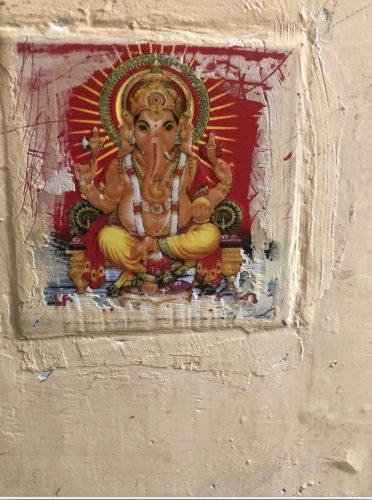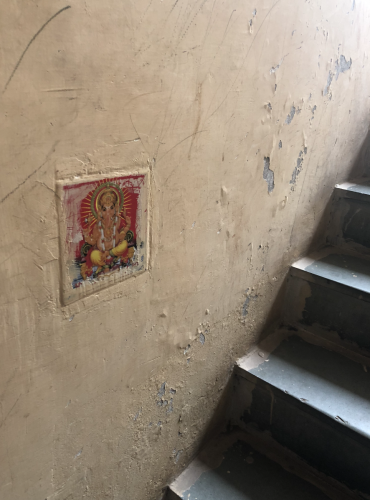
In Sanskrit, the ancient Indian language, Om Shanti means “eternal peace for all of mankind.” According to Hindu scripture, is achieved only when a soul reaches moksha, the divine release from the endless cycle of reincarnation after living a righteous and pious life.
With less than two weeks left until our flights home, it’s hard to not let our excitement to embrace the familiar intrude into our efforts to savor the unexplored. I’ve started to pass up some traditional meals of roti and paneer for Dominoes and McDonalds (if you ever find yourself in India I 10/10 recommend the Maharaja Mac!!) and I wouldn’t mind trading the hot and humid climate for some of the cool and mild weather back home. But at this time in my experience, I’ve also inevitably begun asking myself, “am I happy with what I’ve done here?”
Like a lot of naïve and ambitious Dukies, I came to my DukeEngage project – working on microfinance with Saath Charitable Trust, a local NGO – with aspirations to make as big a difference as my two years of undergrad education would allow. Nearly 7 weeks later, while unfulfilled may not be the right word to describe my experience, I definitely feel as if I haven’t made the impact I had initially hoped to. With the language barrier, different work expectations, and simply the conflicting schedules that interns and mentors face, much of the work I have been doing feels incomplete, or at least in a different state than where I was hoping to be by this point in the trip. On several accounts, I left the office feeling frustrated as another “fruitless” day passed and we inched closer to our departure date for our flights back home.
But on that walk out of the office, I always pass by this:

It’s near the bottom of the wall and no bigger than the size of my palm, and pretty easy to miss in your day-to-day. It’s a depiction of Krishna and Radha, a Hindu god and goddess, painted across walls, stairwells, and alleyways on almost every building and fence I’ve seen in Ahmedabad. I asked one of the employees at Saath why there were paintings of Hindu gods on walls throughout the city, especially when the streets are often so dirty, and perhaps one of the least holy places I would expect a god to be.
“It’s because people spit on the walls or put their feet there, which ruins the beauty of the city. If God is there, people won’t ruin the beauty of God. It’s a reminder that God is always there with us and that we can entirely change the way we look at a simple wall, from something we treat with disrespect to something with divine reverence.”
And it works!
The simple paintings of Hindu lords convinces people to change their behavior and thus, reframe the way they perceive a wall’s seemingly trivial beauty. These paintings made me realize that I was perhaps forgetting the most important qualification for moksha: freedom from ignorance, through self-realization and self-knowledge. The painting of Radha and Krishna at the end of the hallway reminded me that I too can reframe the way that I choose to remember my time here in Ahmedabad. The overwhelming and persistent hospitality by locals, the rich diversity of culture throughout the city, and the memories I’ve made from the many unanticipated experiences I’ve had overshadow the rather naïve ambitions I had to make this trip a purely professional endeavor.
With two weeks left in Ahmedabad and projects wrapping up, I’m hopeful that work at the microfinance office will finish up in a way that both I and my mentors are satisfied with. But looking back on this experience, I understand that the challenges we faced in this process may have prevented this project from meeting my excessively critical expectations for the summer, but that does not mean this trip was “fruitless.” Understanding that is perhaps the only way I will come to peace with my work at Saath, which I am always reminded of in my walk out of the office, but most importantly, only if I choose to look.
Om Shanti, may peace be upon you.



